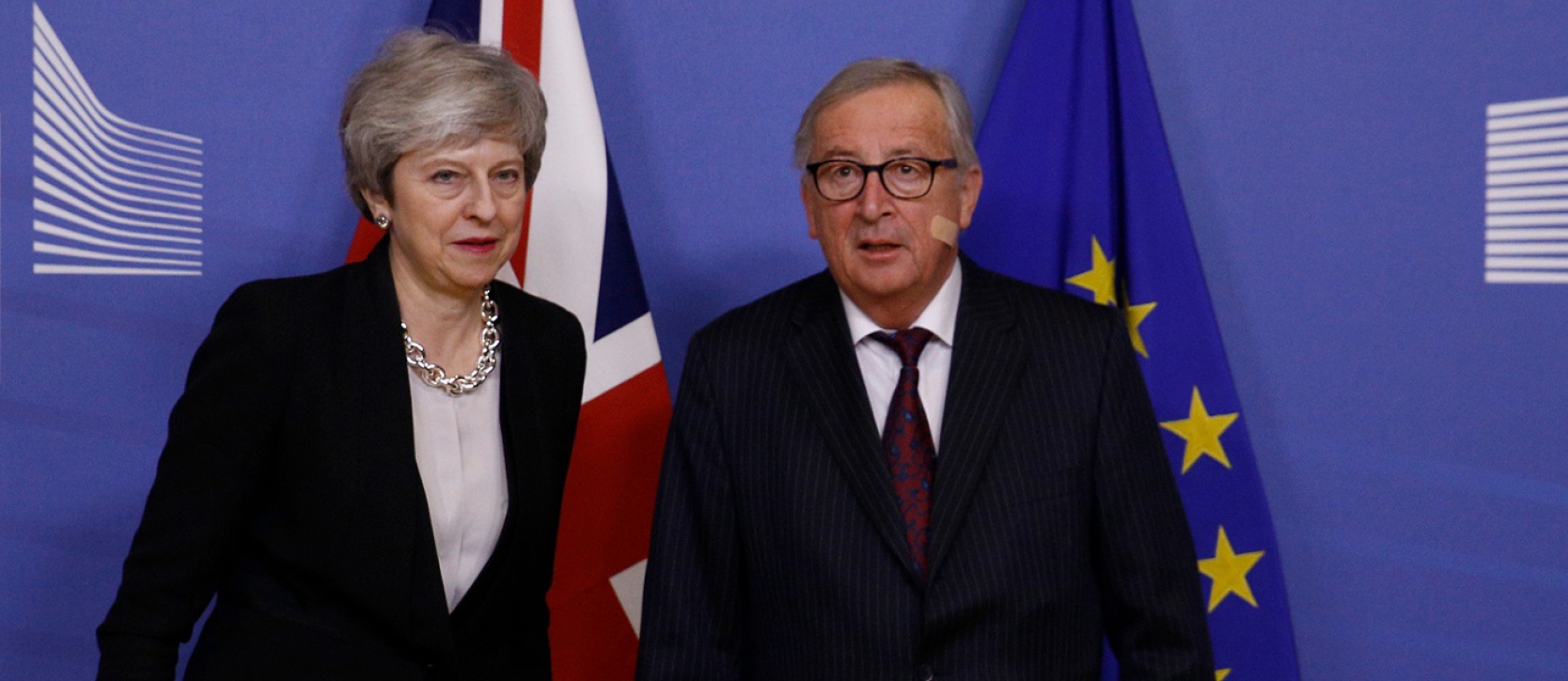Prime Minister Theresa May’s Brexit deal was destroyed by a single sentence in the official legal advice offered by the chief legal officer in the UK, Attorney General Geoffrey Cox. That sentence confirmed that the UK could be stuck in the “backstop,” essentially as a vassal of the EU, permanently. Cox wrote that, despite new agreements with the EU:
[T]he legal risk remains unchanged that if through no such demonstrable failure of either party, but simply because of intractable differences, that situation [the backstop] does arise, the United Kingdom would have, at least while the fundamental circumstances remained the same, no internationally lawful means of exiting the Protocol’s arrangements, save by agreement.
We are not allowed to leave unilaterally. We would have less freedom to leave the EU under the backstop than as a full EU member.
There was a degree of euphoria on Monday evening as May flew to Strasbourg for last minute talks with the EU leadership. She, together with Jean-Claude Junker, emerged late at night to declare that revisions to the deal had been agreed. There was to be an “interpretive instrument,” a “joint statement,” and a “unilateral declaration” delivering (so it was claimed) the legally binding assurances which the British Parliament had sought. Cox’s testimony before Parliament disproved that.
Surely the prime minister must have consulted, and known, that this interpretation was insufficient for the attorney general to change his legal advice that the UK could be permanently trapped in the European Union?
The proposed amended deal went down to defeat in the House of Commons by 391-242, a majority against of 149, something of an improvement, albeit a modest one, from the deficit of 230 votes the first time around.
Britain now enters unchartered waters with a Parliament determined to thwart the clearly stated vote to leave the EU in the 2016 referendum. And the media wonder why populism is on the rise? Perhaps because of betrayal by political elites?
Why does this matter?
People voted to leave the EU (and indeed to remain) for many different reasons. My son, who is 25, and hence in the demographic which the pollsters tell you is overwhelmingly pro-Remain, voted to leave the EU on libertarian grounds. He did not want to be ruled by a remote, largely unelected political elite, an organisation that churns out endless rules and regulations. He wanted to be free. We should not lose sight of the basic libertarian principles which drove many people’s Leave vote. The governments of nation states should be free to elect their own Parliaments, enact their own laws, and set their own rules and regulations.
For the UK to seize all the potential of Brexit, the nation needs a leader with a vision for a free market economy, for international trade between sovereign nations, for no or minimal tariff trade, for deregulation and low taxes.
Some 600 members of the British Parliament seem intent, in no uncertain terms, to defy the will of 17.4 million electors who voted Leave. May’s Conservative government had one task: to deliver on the result of the referendum as voted by the people. Through a combination of incompetence and ineptitude, strategic failure and political folly, the government has failed in its one task.
The consequences for the political process, and indeed for political participation, should worry us all. I have voted in every election in the UK at every level for the last 40 years. Now, there seems little point.
What will happen next?
The government has lost control. The defeat of the proposed Withdrawal Agreement was followed by a hoarse, clearly exhausted prime minister (for whom we should surely pray) announcing two further votes on consecutive days:
- A vote asking the House of Commons whether they wish to leave with no deal (almost certain to be defeated); and
- If a “no deal Brexit” is rejected, a motion asking the House if it wishes to extend Article 50 – the legal instrument which has set (together with the EU Withdrawal Act) March 29 as exit day.
As a simple illustration of the chaos the government announced they would not “whip” their Members of Parliament – it would be a free vote. This sounds attractive, but the only reason it was done was that whichever way the government whipped, there would be Cabinet level resignations. (To be honest, that may have been no bad thing.)
There remain some interesting quirks. No matter how many votes the House of Commons passes, no matter how many motions, none have legal status: They are purely advisory. The only way “no deal” can be removed from its legal default is if Article 50 is revoked. Of that, there is little chance. An extension requires the agreement of the remaining 27 members of the EU. It will be accompanied by the payment of millions more pounds into the EU for the dubious privilege of delay. And it requires a government minister to introduce secondary legislation for a vote in both halves of Parliament.
Expect to see advisory votes against no deal, a vote to extend Article 50, and then most likely the prime minister seeking an extension from the EU. We will then see the spectacle of a Conservative government elected to enact the Brexit referendum result, after two years of largely failed negotiations, completing the treachery by changing the date just days before Brexit.
Of course, none of these moves solves anything. An extension up to the end of May (the most likely outcome, or perhaps early July) simply postpones taking the next step, which remains undefined. If the UK remains in the EU longer than May, then the UK must take part in the elections for European Parliament. It is difficult to see how that could happen without the potential for civil unrest. In any event the Conservative Party vote would be decimated, and rightly so.
May remains deeply wounded by her abject failure to win an outright majority in the 2017 snap election, against a neo-Marxist opponent with a back history of support for terrorist organisations.
For the UK to seize all the potential of Brexit, the nation needs a leader with a vision for a free market economy, for international trade between sovereign nations, for no or minimal tariff trade, for deregulation and low taxes. This is the sort of vision a previous leader of the Conservative Party might have articulated – namely, Margaret Thatcher.
In the meantime, chaos ensues.




